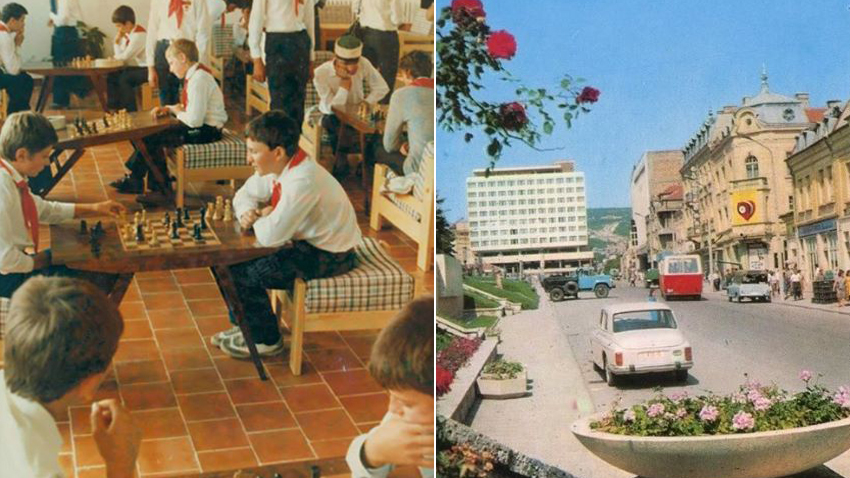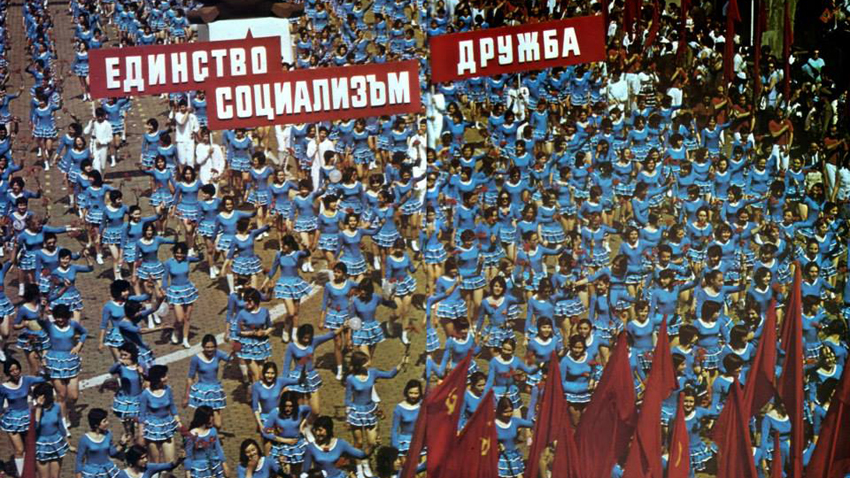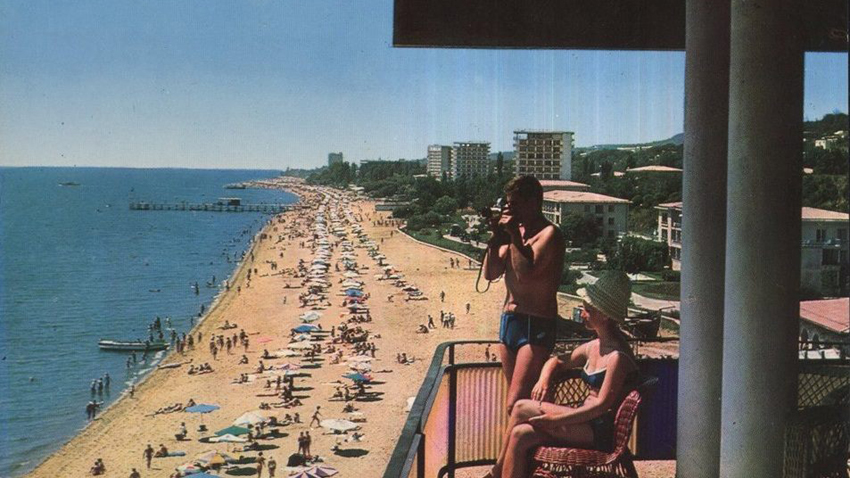Can we travel back in time to our carefree childhood or youth without a glimmer of nostalgia and try to build up a truthful picture of the times we once lived in? The answer is – no, we certainly can’t. All the more so that we are talking here of generations of Bulgarians who grew up in the age of what was called “mature socialism”, a time marred by contradictions, by innuendoes and outright fallacies. How can we explain then the audacity of two young Bulgarians who, without giving it much thought, decided to dive into the murky waters of the recent past, look into their depths and come up with unique pearls from the time socialism. The website Memories of the People’s Republic has proved a veritable hit in the social networks; Milen Danov and Stoyan Gulubov who came up with the idea admit they never expected it to be such a resounding success.

When it comes to our socialist past, feeling always run high. This is the segment of Bulgaria’s history that is most controversial, evoking bitter disputes and divergent opinions. Why? “Because we have not yet made a reappraisal of those years as people in the other former socialist countries have done,” says 30-year old Milen Danov, one of the authors of the website. And adds, that he is trying to be as unbiased and objective as possible when he uploads articles or photographs from those times. Yet in the eyes of most people his age, socialism is light years back in time, not just 25. Due to inadmissible oversights in our system of education, the young generation know next to nothing about the 45 years of the totalitarian regime that have left their imprint on the past but also on the present of Bulgaria. The young but also the older generation log onto the website and many leave their emotional comments under each article. But, on the whole, they are light hearted and with a sense of humour regarding the “glorious” times of socialism.

“Here you can see photographs of school children when they had to be members of what were called “pioneer” and “komsomol” organizations, photos of communist party congresses, or see what our towns looked like – a very different Bulgaria from what it is today,” says Milen.
If you take a look at the pictures from the 1970’s of the Black Sea coastline before it was built up, the articles about children playing “in front of the apartment blocks, in the neighbourhood or in the village”, they are sure to bring a smile to your face. The latest publication called “Top 10 lady killers” with its witty comments, referrals and comparisons to the Bulgarian macho of today has become a real hit. “No, it is certainly not a nostalgic site,” says 32-year old Stoyan Gulubov:

“We have been tempted to call our users nostalgic. But in fact nostalgia means having a positive memory of some kind. You might feel nostalgic about something if it was a good thing. But most of our readers do not have good memories of socialist times. So, I can definitely say that our website is not nostalgic. It triggers storms of comments, and leans towards being a discussion site, though not necessarily about nostalgic memories or feelings.”

It is true, there is nothing nostalgic about the stories and testimonials of persecution, concentration camps and fire squads, published in the website. The empty store shelves, the censorship and the winding queues in front of the Interior Ministry’s consular section for “exit visas” are not particularly romantic either. But some Bulgarians still harbour glowing reminiscences of the times of “mature socialism” when everyone had a job, went to the seaside every summer, when children got an “excellent” education at the neighbourhood or village school. Why is nostalgia of the socialist times rife – not just among the older generation, but also among young people who have nothing to go on but stories they have heard of those times?
“I have been asking myself this self same question,” Milen Danev says. “Perhaps what is wrong is that the transition in this country was very different to what happened in the other ex-socialist countries. So some people probably had great expectations back in the 1990’s. And when things didn’t work out as they expected, they prefer to live in the past.”

The past is a puzzle, like a shattered mirror – if you try to put the pieces back together again, you are sure to cut yourself. Your reflection in it will be different, and so will you, a saying goes. Perhaps that is why we, Bulgarians feel a constant need to go back in time, to put the pieces of the past together again, to peer into our reflection in search of an answer to the grim lives we lead today.
English: Milena Daynova
Photos: socbg.comOver 3.5 million Ukrainians have arrived in or passed through Bulgaria since the beginning of the war. Nearly 200,000 people have found temporary shelter in the country, announced Anna Tertychna from the Ukrainian Embassy in Bulgaria. She..
At the Bulgarian Embassy in London, Prof. Bettany Hughes presented excerpts from the new BBC series - Wonders of Bulgaria. Prof. Bettany Hughes is the author of two episodes of the documentary. Hughes is a historian, writer, author of..
According to the Annual Report on the Health Status of Bulgarian Citizens for 2023, t he main cause of death in Bulgaria is diseases of the cardiovascular system (61.1%), followed by oncological diseases (16.5%) and diseases of the respiratory system..
An innovation for the treatment of diabetic foot ulcer using the patient's own tissue and artificial intelligence has been implemented at the University..
The residents of Pleven (Central North Bulgaria) will bid farewell to 2024 with a Christmas Town and meetings with Santa Claus. This year's festive..
Over 3.5 million Ukrainians have arrived in or passed through Bulgaria since the beginning of the war. Nearly 200,000 people have found temporary..

+359 2 9336 661
